🔥 THE SUCCESSION CONUNDRUM – BUILT TO LAST
Welcome to the Leadership Fireside Flow – Words and Pictures by #TheSidewalkProphet
🎬 THE PREAMBLE: GLOBAL LESSONS FROM LEGENDS
🍏 Jobs & Cook – The Textbook Handshake
⚽ Ferguson & Manchester United – The Vacuum After the King
🏎️ Schumacher & Ferrari – The Dynasty and the Fall
🥤 Red Bull & Christian Horner – The £52m Divorce Settlement
👔 Giorgio Armani – The Eternal Shadow of a Genius
📷 nice and neat - whisky sour @ golf oclock.
The fourball is done. Time for that dirty drink before we hit the showers. The drinks are ordered, whisky is flowing, and the nyama choma starts sizzling. Then someone clears their throat and drops the big one:
“So what really happens when the giant leaves the room?”
Not in theory. Not in a board memo. But in the messy, human way giants leave — with egos, grudges, scars, and the corporate gossip that eventually follows.
This is a hot topic so, “hold that thought - let’s pour another round and take a shower first before we begin that conversation. Ama?”
🎬 EPISODE ONE: GLOBAL LESSONS FROM LEGENDS
🍏 Jobs & Cook – The Textbook Handshake (with 2am Calls and Borrowed Money)
Jobs had already lived the nightmare. Fired from Apple in the ’80s, he watched it stumble into irrelevance. By the late ’90s, Apple was weeks from bankruptcy. He had to swallow his pride and borrow money from his arch-rival, Bill Gates. Imagine that? Gates’ face beamed onto a Macworld screen as the unlikely saviour. Humiliation, live on stage.
That scar shaped Jobs. When he returned, he rebuilt Apple — not just with iMacs and iPods, but with people. Systems. Resilience. And at the centre? Tim Cook.
Cook wasn’t Jobs. No turtlenecks, no messiah stagecraft. He was the supply chain monk. Jobs would call him at 2am, just to test loyalty. Cook always picked up.
When Jobs died, the world braced for collapse. Instead, Cook kept the machine running — smoother, bigger, richer. Apple became the world’s first $3 trillion company.
📷 Lesson from the whisky glass: scar tissue writes the best succession plans.
⚽ Ferguson & Manchester United – The Vacuum After the King
Sir Alex Ferguson wasn’t just United’s manager. He was king. Twenty-six years, 13 league titles. He controlled everything — diet, discipline, transfers, even haircuts.
And if you crossed him? You were out. Just ask Jaap Stam. Just ask David Beckham — banished to Madrid after the famous boot-to-the-face incident. Even Cristiano Ronaldo, for all his glitter, learned quickly that Ferguson’s kingdom had only one ruler. Ish… nervous laughter around the table.
Then Fergie retired. No heir, no bench. His “chosen one,” David Moyes, never stood a chance. Six months in, the whispers had already started: “He’s not Fergie.” By the end of the season, he was gone.
A decade later, United is still staggering. Coaches chewed up, billions wasted, the ghost of Ferguson looming larger every year.
📷 Lesson from the bar stool: if one man hoards all the keys, the house collapses when he leaves.
🏎️ Schumacher & Ferrari – The Dynasty and the Fall
Michael Schumacher wasn’t just a driver. He was a force of nature. A two-time champion with Benetton-Renault, he jumped to Ferrari in the mid-’90s — a behemoth brand, but one starved of success.
Ferrari needed a warrior, a spearhead. Schumacher reshaped the team around him. Ross Brawn on strategy, Jean Todt in management, and engineers handpicked to bend to Michael’s rhythm. Even his teammates were chosen not to disrupt the flow. The whole garage existed to fuel one man’s drive.
The early years were hard, but once the dam broke? They couldn’t stop. Five straight world titles. Ferrari wasn’t just winning — they were untouchable.
And then, as always, the giant left. Schumacher stepped away, and with him went the magic. Ferrari turned inward, political. Leaders sacked, engineers poached, culture fractured. The cars were still red, the engines still roared — but the chemistry, the soul, was gone.
📷 Lesson from the smoky grill: a dynasty built around one man’s will rarely survives the man himself.
🥤 Red Bull & Christian Horner – The £52m Divorce Settlement
Christian Horner didn’t just leave Red Bull — he walked away with a golden suitcase. £52m. Sixty million euros to step aside. Imagine that. That’s not an exit; that’s a divorce settlement with visitation rights to the paddock.
Here’s the man who turned Red Bull from an energy drink gimmick into a Formula 1 dynasty. Six constructors’ titles. Eight drivers’ crowns. Verstappen turned into a rockstar. Horner himself became a character bigger than the grid — part boss, part soap opera.
But the knives caught up. Allegations. Leaks. Feuds with Verstappen’s camp. Adrian Newey walked. The garage wobbled. And in September 2025, Red Bull confirmed what everyone already knew: the Horner era was over.
The payout? A neat £52m. A golden handshake so fat it could fund a midfield F1 team for a season. Red Bull called it mutual. Insiders call it hush money. Because let’s be honest: if Horner wanted to fight, this would have dragged through courts and headlines for years.
Now? He’s free. 51 years old, ambitions unsated, a very rich man waiting for the next project.
But here’s the fireside question: was Red Bull, Red Bull, or was it Horner’s theatre?
📷 Lesson from the last sip: when a leader cashes out at £52m, that’s not just an exit. That’s a messy divorce where the lawyers walk away smiling.
👔 Giorgio Armani – The Eternal Shadow of a Genius
“Ati Armani? The man is pushing 90 and still sketches every single design himself!” someone chuckles. Every line, every jacket, every cut still passes through his hands. But what many don’t know is the real story.
This is a man who almost became a doctor. He spent three years in medical school, only to find solace and inspiration in the Roman amphitheater of Verona while serving in the army. It was there, amidst the history and the grand performances, that he realized his true calling wasn’t to heal bodies, but to clothe them. This new path became his obsession.
That’s more than just leadership. That’s a religious rite of passage.
Armani didn’t just build a fashion house; he built an empire from scratch, famously selling his car to partner with a man who was more than a business partner—the late Sergio Galeotti, his confidant and supposed lover. The two of them were the brand’s heart and soul. He controlled the designs, the stores, and even the music at the runway shows. His name isn’t on the door by accident—it’s the entire brand, a symbol of timelessness embodied by the very eagle in his logo.
And now, the man is gone! And therein lies the curse.
The eagle with the letters “GA” in its chest has no clear heir. No understudy. No Tim Cook, no Moyes, no Schumacher-style team. Just #Giorgio. He once hinted that family might take over, or a foundation could keep things going. But let’s be honest—no one buys an Armani suit because of a board of trustees. They buy it because of Giorgio, the man who was first to open a store in China, first to ban size-zero models, and the genius who created the concept of power dressing for women.
Insiders whisper succession here will be a “caretaker” game: someone polite to steady the ship until the brand is eventually carved up or sold. But how do you inherit another man’s eye? You can replicate the stitches, but you can’t replicate the soul.
And fashion is unforgiving. The moment the aura fades, consumers move on. Just ask Versace after Gianni. Just ask Dior after Galliano. The struggle is real.
📷 Lesson from the choma platter: when a brand is built entirely on one person’s genius and personal history—from a Verona amphitheater to the catwalks of Milan—succession isn’t a plan. It’s a prayer.
🧭 The Global Fireside Takeaway
Jobs left scar tissue wisdom. #Ferguson left a vacuum. #Schumacher built a dynasty of willpower. #Horner cashed out with a £52m divorce. #Armani was still clinging to the brush, right to the end.
At the fireside, the verdict is clear:
Succession isn’t about cloning charisma. It’s about whether the soul, the system, the story can survive when the giant finally leaves the room.
And someone leans in, nyama bone in hand:
“Alright, that’s them. But what about us — hapa nyumbani?”
🍖 SUCCESSION POLITRICKS: THE KENYAN EDITION
📱 Safaricom – The Religion of Peculiar Kenyans
🎨 Scangroup – The Godfather’s Soap Opera
💳 NCBA – The Banker’s Marriage
🍖 EPISODE TWO: THE KENYAN EDITION
The drinks are now flowing freely, nyama choma is doing the rounds, and then Njoroge asks:
“Sawa sawa, we’ve talked about Jobs, Fergie, Schumacher… lakini what about hapa nyumbani? How do our local stories stack up against the global succession conversations we’ve been dissecting?”
This is where the fireside gets loud. Because Kenyan boardrooms have their own succession dramas — messy, glorious, sometimes it’s like a straight-up Citizen TV drama — like #ViuSasa. So let’s dive right in and find out...
📱 Safaricom – The Religion of Peculiar Kenyans
Let’s start with the #BigDog, Michael Joseph. The founding boss at Safaricom. The man who gave Kenya M-Pesa and turned the company into more than just a business — he made it our national heartbeat.
Safaricom wasn’t just a telco; it became a religion. Iconic brand campaigns. Corporate jingles everyone could sing. Sunday service with airtime. Our daily currency.
#MJ is the guy who dared to call Kenyans “peculiar” on TV — and lived to tell the tale. Legend status. Pap! In one move, he took mobile phones from a Kshs 200K-a-month luxury to a #Bamba50 commodity. Kencell, Zain, Airtel? They’re still nursing that sucker punch. Add M-Pesa to that mix, and the competition was floored. Forever playing catch-up.
How do you replace a guy like that? The board’s answer: you don’t. You bridge.
They tapped Bob Collymore — a Vodafone insider — and kept MJ close, perched on the board like a godfather watching his family. Bob didn’t mimic MJ. He found his lane. More human, more social, pushing Safaricom as a “people-first” brand. Kenyans lapped it up. And when he married Njeri, a Kenyan girl? That case was closed. We all agreed, “Huyu sasa ni wetu.”
Then tragedy. Bob’s passing in 2019 shook the nation. It wasn’t just a CEO’s death; it felt like a family bereavement. Safaricom was again at a crossroads.
Enter Peter Ndegwa, the first Kenyan CEO. A polished corporate man with the right international seasoning to make Vodafone happy, ex-Diageo, numbers-driven. Now, he’s leading Safaricom into its toughest era yet: turning from telco to tech, cracking Ethiopia was daring, and proving he could lead without the cult charisma of his predecessors was not easy either.
But the real battle? Right here at home. A whole new generation has entered the chat — #GenZ — are demanding transparency, calling out brands loudly, publicly, fearlessly. And Safaricom, once their saviour, is now their biggest target.
For the first time, Safaricom’s pulpit faces hecklers. And trust me, the story’s only getting started.
📷 “Sisi ndio tuko!” Bado mapambano… Board resilience and cool heads matter.
🎨 Scangroup – The Godfather’s Trilogy
If MJ was the priest, Bharat Thakrar was the hustler-king of advertising. The man literally slept in his car in the early days. Brick by brick, pitch by pitch, he built Scangroup into an empire. He signed WPP, brought in global muscle, and even took the business public on the NSE. For years, if you weren’t with Scangroup, you weren’t in the game. Bharat was the Godfather. Full stop.
And then — poof. He was gone. Not planned. Not graceful. Forced out amid scandal. Overnight, the empire was leaderless. The shock was seismic. How do you replace a man whose name had become the industry itself?
But Bharat didn’t just fade into the night. No. He lawyered up. Billion-shilling lawsuits, counter-claims, and interviews dripping with venom. What should have been a smooth succession turned into a messy, very public divorce. Netflix couldn’t have scripted it better.
Into this chaos walked Patricia Ithau. Corporate pedigree, FMCG polish, serious credentials. But Scangroup wasn’t soap or beer. This was advertising — jazz, chaos, egos, late nights. Her clean-up drive clashed with the freewheeling creative culture. Suddenly, the “cool kids” felt policed. Talent bolted. Clients followed. And every time she tried to steady the ship, Bharat’s ghost popped up with another legal twist.
By the time she exited in 2025, the empire was bleeding. Instead of Industry Awards, there were Profit Warnings. Revenues were down, share price was tanking, the once-proud agency scattered like the #Fugees. The Godfather’s kingdom had become #MotherInLaw — a #CitizenTV soap opera, complete with courtrooms, boardroom brawls, and plenty of side-eye in the industry WhatsApp groups.
📷 Lesson from the hot wings: Culture eats strategy for breakfast, lunch, and dinner. Ignore that at your peril.
💳 NCBA – The Banker’s Marriage
NIC + CBA. This wasn’t a handover; it was a wedding. Not a funeral, a marriage of giants.
CBA checked in with swagger — M-Shwari in its pocket, Fuliza flexing, the KCB rivalry humming. NIC walked in with asset finance dominance, corporate clients, and a regional footprint. On paper, it looked like a match made in heaven.
But like any marriage, the fight was over the driver’s seat. Both CEOs wanted the wheel. John Gachora from NIC. Isaac Awuondo from CBA. Two big dogs circling the same bone. The board crowned Gachora. But here’s the twist — they didn’t exile Awuondo. Instead, he was given chairman duties and a key role over digital banking.
Call it power-sharing. Call it face-saving. In fireside terms? It was political genius. Two kings, one kingdom, no palace coup.
Of course, the honeymoon wasn’t smooth. Cultures clashed, systems tangled, staff whispered about “the NIC way” versus “the CBA way.” Then COVID crashed the reception, forcing a still-settling merger to sprint into survival mode.
But here’s the miracle — both chefs stayed in the kitchen. No one stormed out, no palace fire. NCBA lived to fight another day, bigger and bolder than either parent bank had ever been alone.
📷 Lesson from the choma plate: succession isn’t always heirs and ousters. Sometimes it’s about compromise — two rivals sharing a kingdom without burning the palace down.
🧭 The Kenyan Fireside Takeaway
Safaricom gave us a priest, a godfather, and now a numbers man facing a heckling generation.
Scangroup gave us a hustler-king toppled in scandal, his ghost still haunting boardrooms.
NCBA gave us a banker’s marriage — not a clean handover, but a smart compromise.
At the 19th hole, the verdict is clear:
Kenya’s giants rise and stumble not just on numbers, but on people, culture, and the messy art of succession. And just when the last nyama bone is chewed clean, someone leans back and drops the closer: “So, tell me… is your company ready for the day your giant walks out?
Silence. Glasses clink. Debate postponed. The night is over.
That’s my cue to leave as well. Just like that, this vibe is over. I hope you all enjoyed the ride. If you did, please subscribe. Shukran!


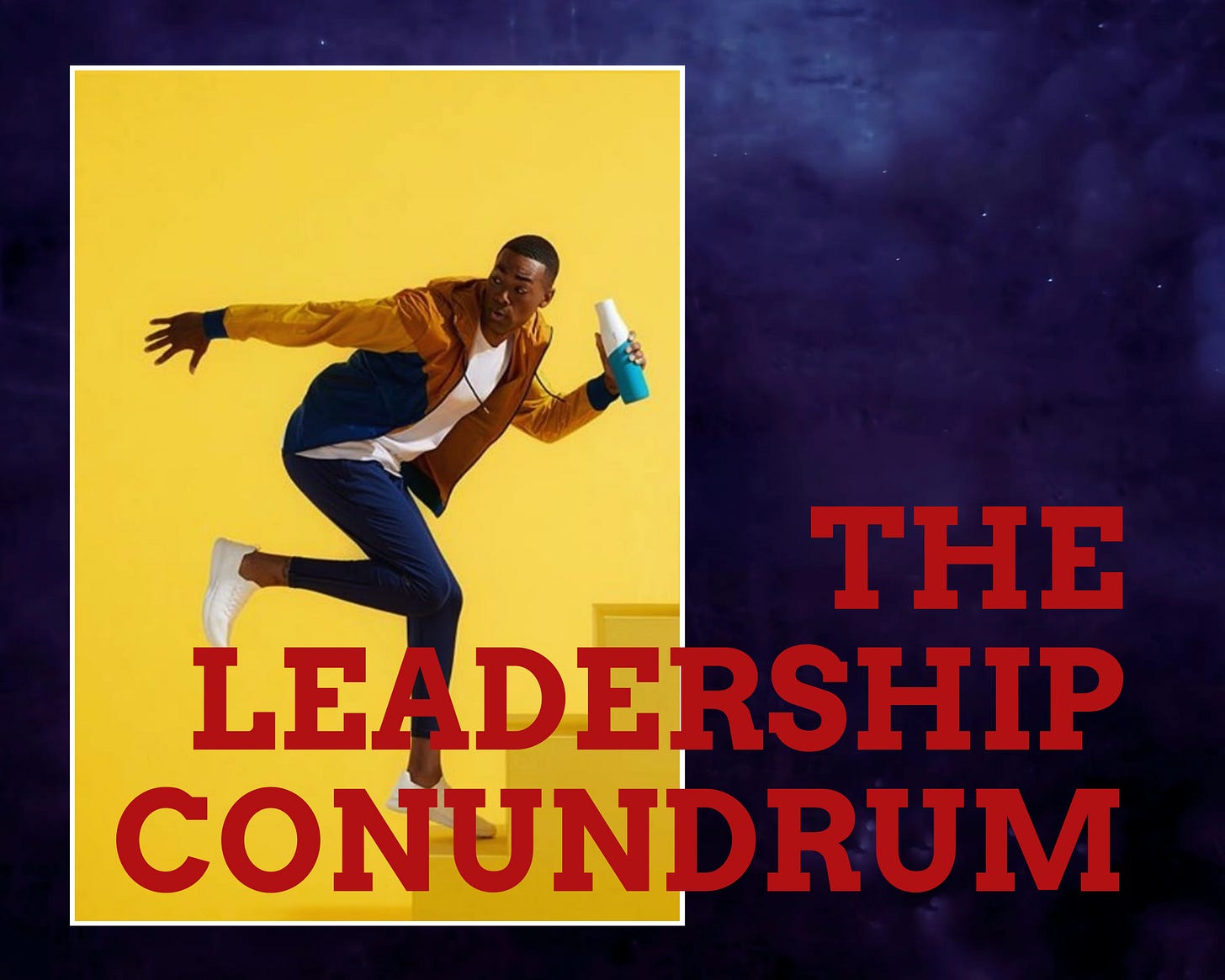

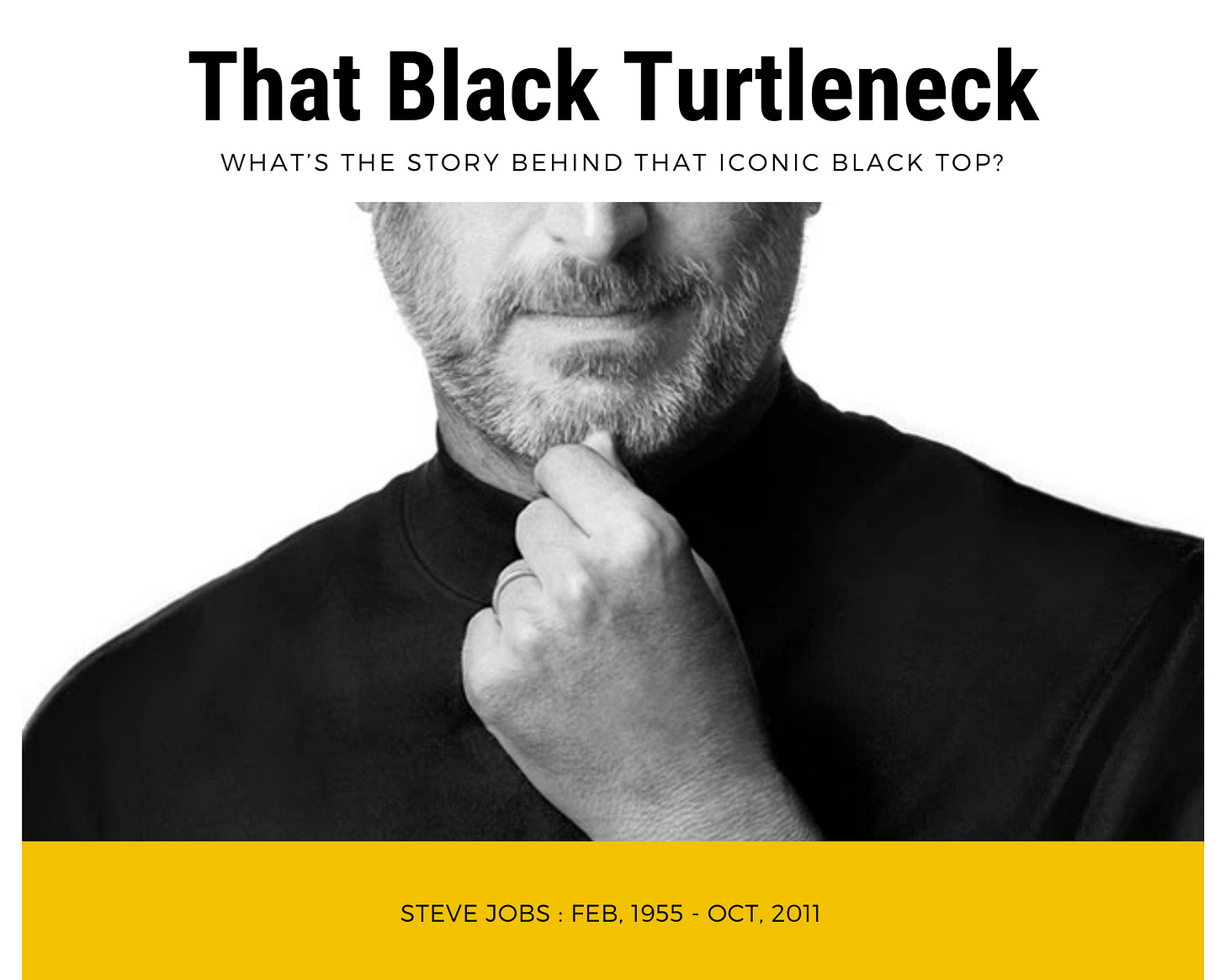
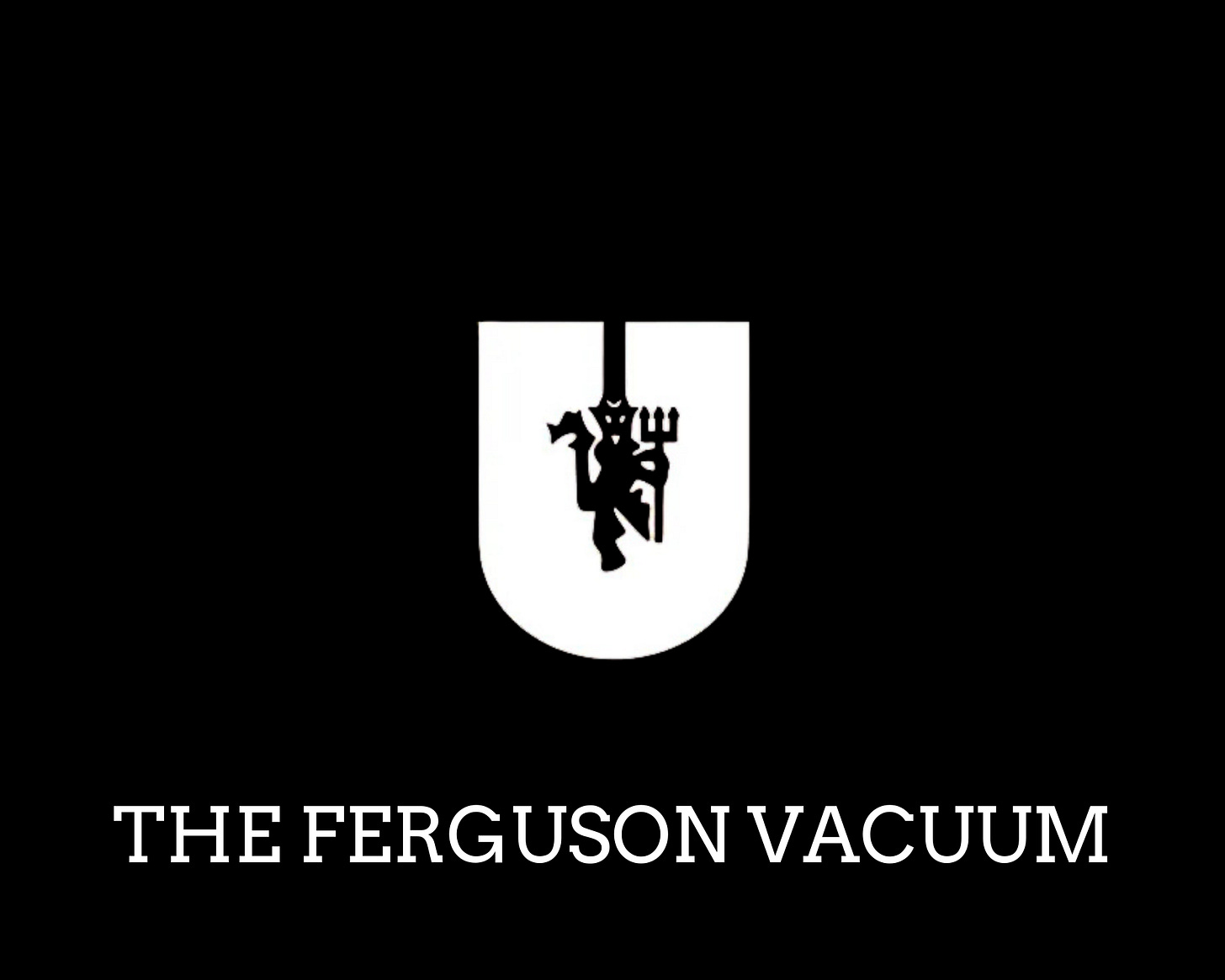



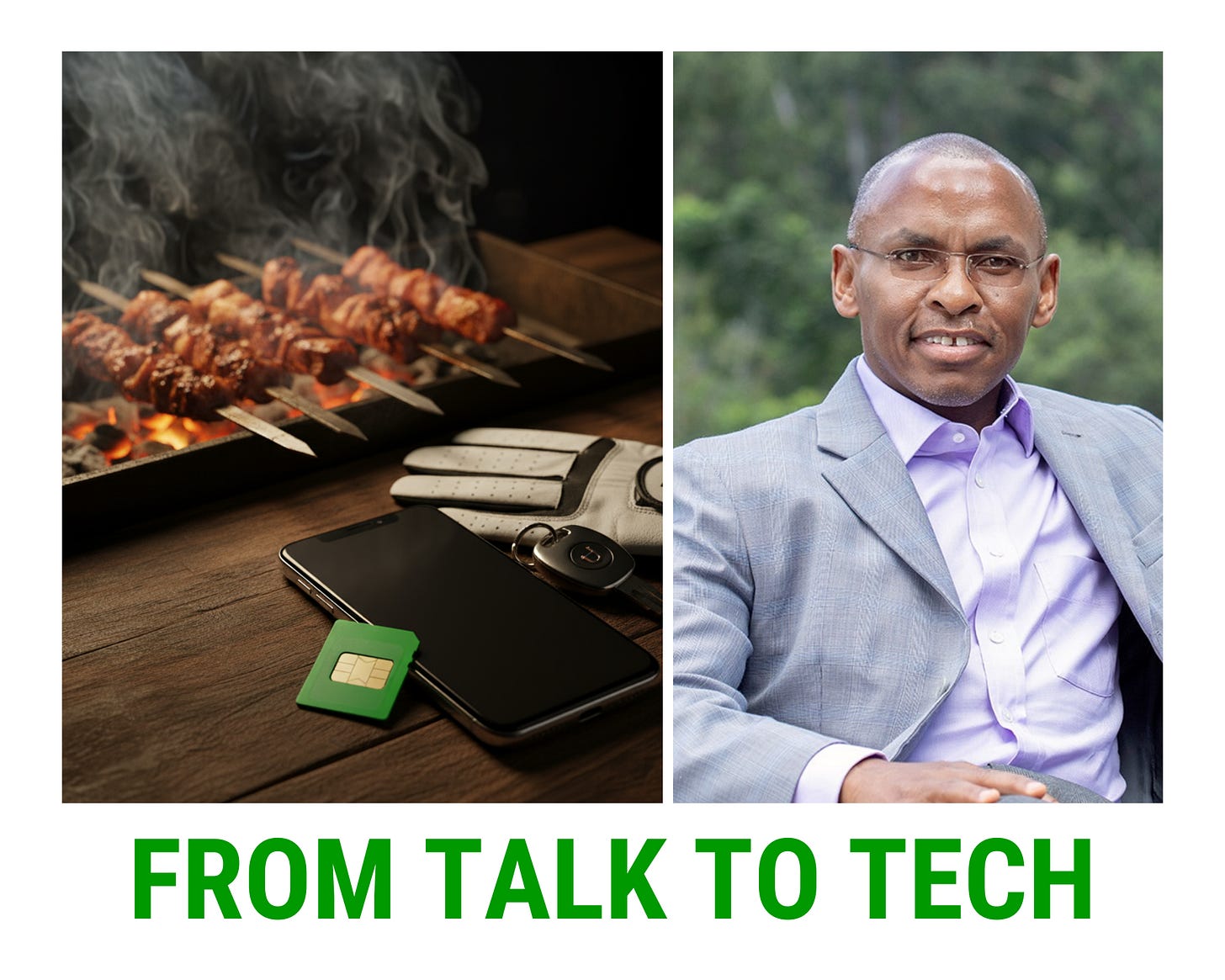
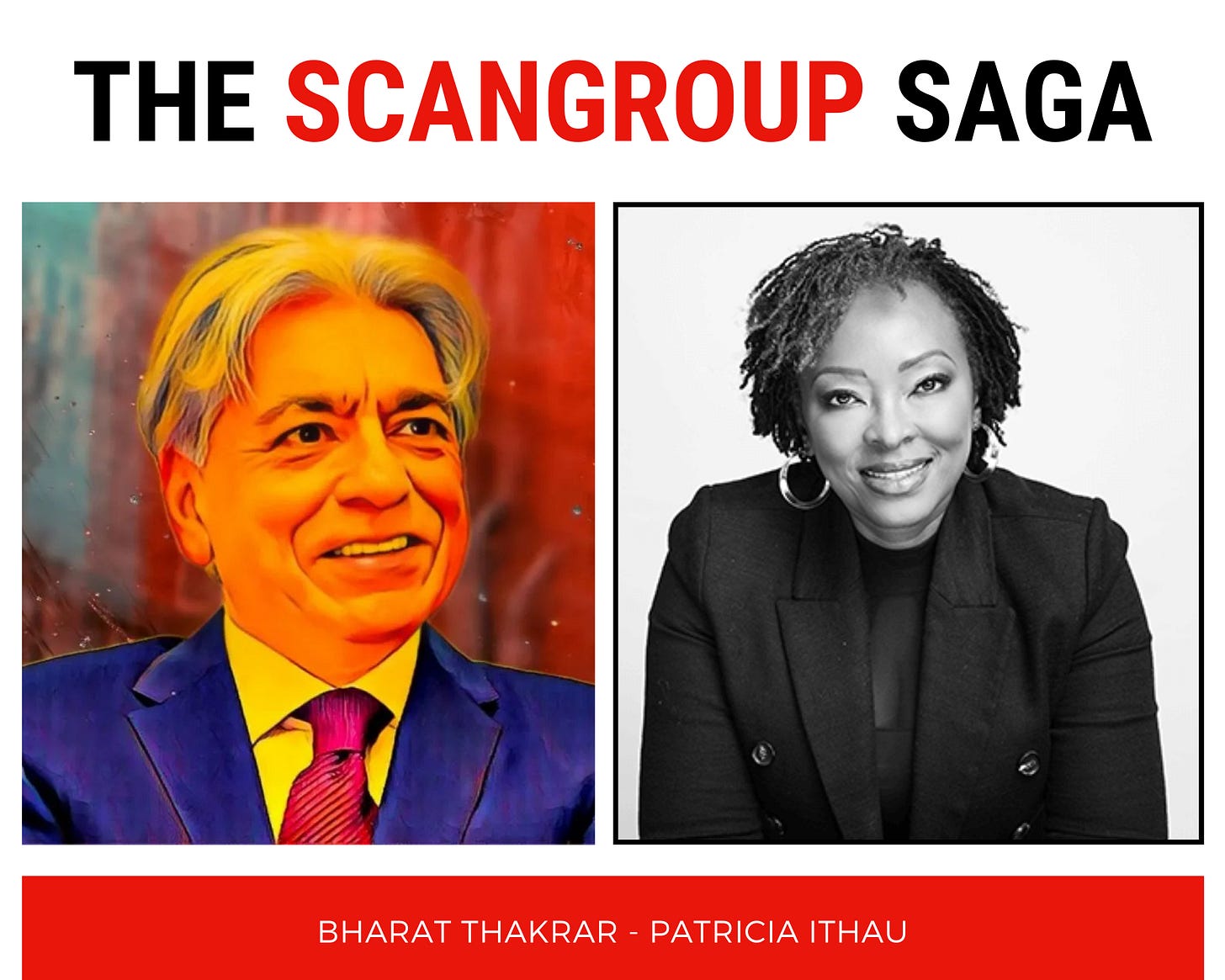
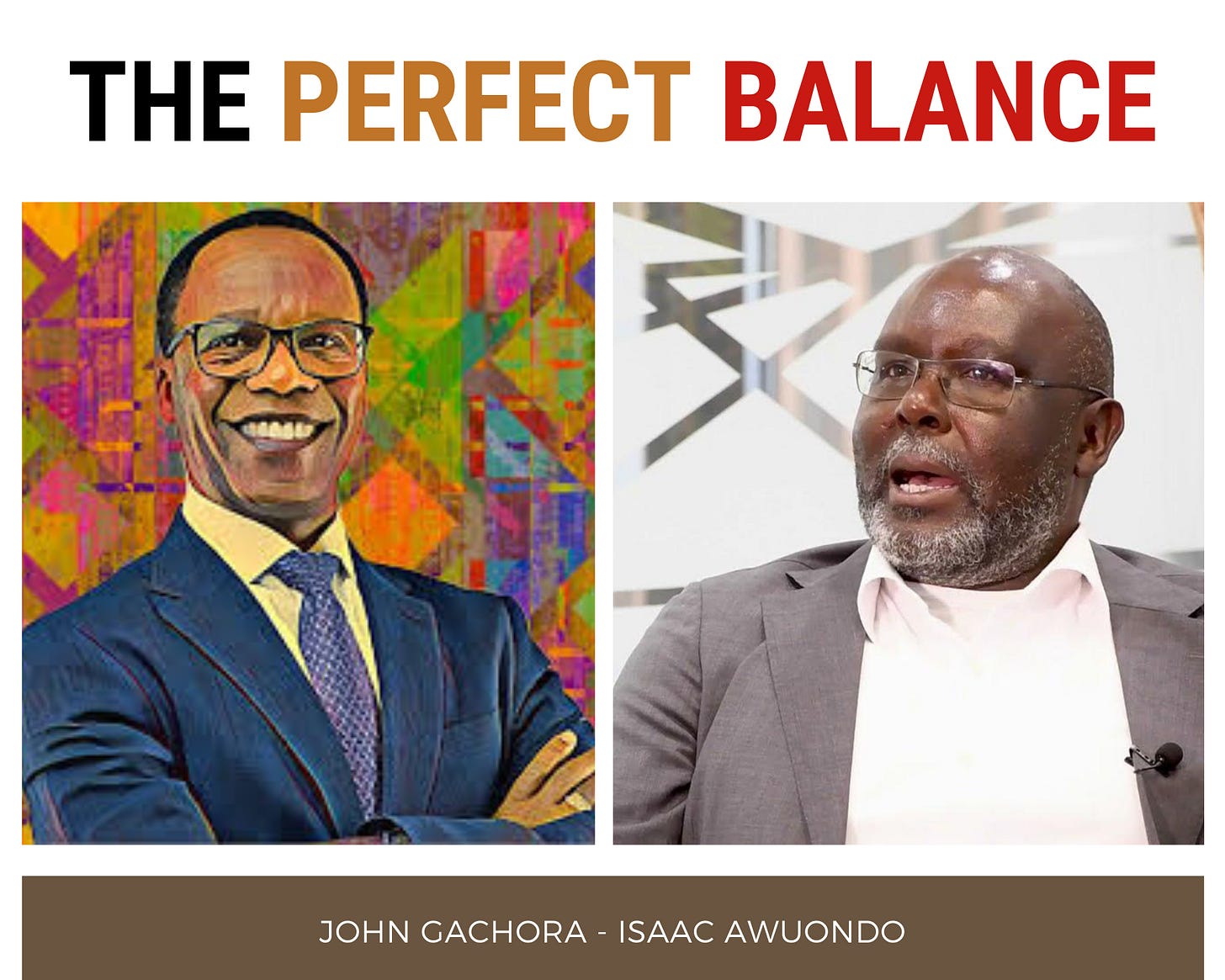
When you're done with corporate succession, maybe we should explore the dynamics of family succession. ... It's been a good read and has most definitely broadened my perspective on the subject.
Good stuff Pablo....succession planning is taboo....Kenyans had s law against imagining the demise of a president.
We never talk about the next episode because it challenges what we are doing now.
Finya kabisa bro. Great read!!